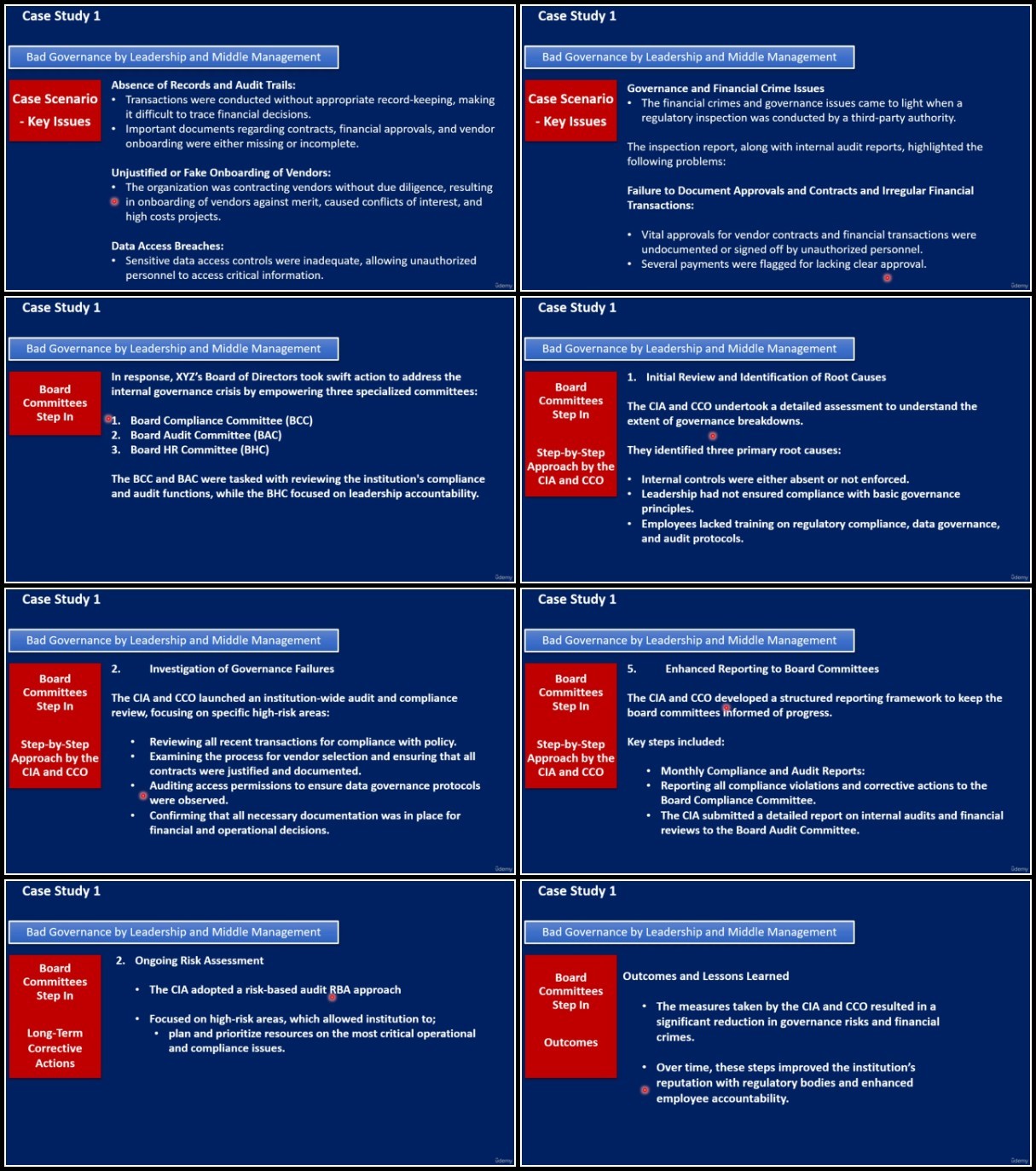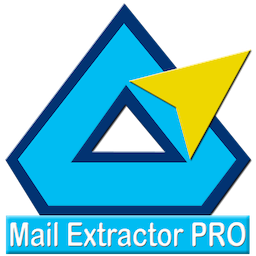Most Commented
Fundamentals Of Strong Governance Models And Practices




Description material

Fundamentals Of Strong Governance Models And Practices
Published 11/2024
MP4 | Video: h264, 1920x1080 | Audio: AAC, 44.1 KHz
Language: English | Size: 1.58 GB | Duration: 3h 37m
Learn Governance, Board, Committees, Leadership, Departments, Hierarchies, Structures, Accountability, Case Studies, etc
What you'll learn
Governance, Various Structures of Governance, and Organziations
Principles of Sound Governance for Organizations and Institutions
Board of Directors, Various Board Level Committees, Compositions, Structures, Hierarchies, Meetings
Leadership, Various Leadership Committees, Structures, Roles, Meetings, and Hierarchies
Departmental Level Governance, Supervision Mechanisms, Hierarchies, Reporting Models
Case Studies of Governance Issues, and Resolutions through Governance Principles
Requirements
Basic Knowledge of Governance, Board of Directors, Board Committees, Leadership/Management, Committees and Departments of Organizations or Institutions
Description
Good Governance Practices, and Effective Organizational Structures, including establishing and setting Board and Board Committees' Level Governance, Leadership, and Leadership Level Committees Governance, Formation of Crucial Departments with Hierarchies, Reviews and Accountability Mechanisms, etc are key essentials for the success and survival of any institution, organization, company or business. We have seen in the past that institutions, and organizations that lacked appropriate Governance Models, Hierarchies, Supervision, and Reporting Mechanisms, faced financial, operational, legal, compliance, and reputational issues and risks. Regulators imposed significant penalties on such institutions that lacked good governance, internal controls, and accountability practices. What Important Areas and Topics, Will You Learn In This Course?In this course, you will learn in detail the Fundamentals of Governance, Governance Models, Structures, Hierarchies, Reporting Ladders, Reporting Mechanisms, Critical Governance Committees, and their Structures, Responsibilities of Stakeholders, Principles of Sound Governance Model, Case Studies, etc. You will learn about important and key Board and Leadership/Management level Committees, their structures, roles, responsibilities, and actions, to ensure implementation and maintaining the strong governance and accountability practices in the organization, institution, or company. You will learn these concepts with the help of visual structural organizagrams and diagrams.We will discuss practical case studies in this course, where you will learn the key roles of Governance, and how the 'governance supervision mechanism' in an institution works, in identifying and resolving significant issues, to prevent losses and risks including financial crime, operational, reputational and financial risks. Why Is This Course Important?If you are a working professional, business owner, company owner, board member, departmental head, or planning to join any organization or institution for a job, then this course will help you learn and understand, how the organizations and institutions are governed and structured, to ensure implementation of good governance, compliance, risk management, finance, human resource, technology, and operational practices and activities. This course is relevant for almost all types of Organizations and Institutions. Why Do You Need To Know Good Governance Models, Practices and Accountability Mechanisms?Because the adoption of Good Governance Models and Mechanisms is crucial and essential, for the success and survival of any institution, organization, company, business, or startup. The success and survival of every institution and organization including Financial Institutions, Financial Technology Companies Fin-Techs, Payment Gateways, E-Commerce Companies, FMCGs, Money Further, Service Companies (MSBs), Healthcare Institutions, Educational Institutions, Airlines, Transportation, etc etc are dependent on Good Governance Models, Leadership Structures, and Accountability Mechanisms. These institutions and Organizations are required to understand and implement appropriate and relevant Governance Models, Structures, Internal Controls, Reviews, and Accountability mechanisms, from Board to Leadership and Department levels, to;- comply with applicable laws and regulations, - prevent financial and operational risks, and - avoid regulatory penalties for various reasons. Further, regulators also emphasize on Governance and they also conduct inspections of governance practices implemented in organizations. Regulators impose heavy penalties on those institutions, organizations, companies, and businesses that do not adopt, implement, and comply with Good Governance Models, Laws, Regulations and Frameworks. Practical Case ScenariosIn this course, you will learn in detail different practical case scenarios and situations, that highlight significant lapses and issues, generate governance triggers, reviews, immediate and long-term actions implementation, and related outcomes for the prevention of losses and survival of the organizations.How Will You Benefit From This Course?By attending this course you will:- learn Governance Models and Structures, - learn about various supervisory committees that operate within institutions for Governance and Accountability, - learn committee structures, reporting lines, roles of committees, and their reporting structures, - learn about various departments and their organograms, with their overall and unit-level activities, and supervisions. - be able to confidently talk about Governance, Leadership, Models, Structures, Hierarchies, Effective Controls, Departments and their activities,- get lifetime access and a certificate of completion of this course Who Should Attend This Course:Governance Professionals,Board of Directors, Leadership and Management Professionals,Presidents, Chief Executive Officers, CEO, Chief Operating Officers CCOs, Business and Companies Owners,Compliance professionals, AML / CFT Professionals, AML Analysts,Chief Finance Officers CFOs, Finance Professionals, Chief Technology Officers, IT Professionals, CISOs,Risk Management Professionals, Operational Risk Management Professionals, Enterprise Risk Managers, Auditors and Controls Professionals, Fraud Prevention and Investigation Professionals, Fraud Risk Management Professionals, Financial Intelligence Unit FIU professionals, Branch Managers / Operations Managers, Governance, Risk, and Compliance GRC Students, such as CAMS students, Audit students, Finance Students, Risk Management students, etc who want to learn more about Governance and Governance Models with Case Studies.
Overview
Section 1: Introduction
Lecture 1 Course Topics
Section 2: Types of Different Organizations
Lecture 2 Type of Various Organizations and Institutions
Section 3: Governance Models Implemented in Organizations and Institutions
Lecture 3 Overview of Board and Management Level Governance Model
Lecture 4 Components of Board and Management Level Governance
Lecture 5 Components of Management Levels - Front and Back Offices
Section 4: Roles and Responsibilities of the Board of Directors
Lecture 6 Key Roles and Responsibilities of the Full Board
Section 5: Board Level Sub Committees, Models and Structures
Lecture 7 Overview Picture of Board Level Committees
Lecture 8 Board Level Composition, TORs, and Roles
Lecture 9 Different Board Level Committees and their Supervisory Roles
Lecture 10 Board Level Information Technology IT and Board Level Human Resource Committees
Lecture 11 Board Level Investment Committee BIC
Lecture 12 Board Level Risk Management Committee BRMC
Lecture 13 Board Level Compliance Committee BCC
Lecture 14 Board Level Audit BAC Committee Structure and Key Roles
Section 6: Management Level Governance Models
Lecture 15 Management Level Committees and Hierarchies
Lecture 16 Management Level Information Technology IT Committee
Lecture 17 Management Level Human Resource HR Committee Model and Roles
Lecture 18 Management Level Investment Committee Governance Model and Key Roles
Lecture 19 Management Level - Compliance Committee Governance Model and Key Roles
Lecture 20 Management level - Risk Management Committee Governance Model and Key Roles
Lecture 21 Management level - Finance and Controls Committee Governance Model and Key Roles
Section 7: Three Lines of Defense TLOD Governance Model
Lecture 22 Three Lines of Defense TLOD Governance Model
Section 8: Department Level Governance Models and Hierarchies
Lecture 23 Department Level Governance Models and Hierarchies - Finance Department
Lecture 24 Department Level Governance and Hierarchy - Human Resource Department
Lecture 25 Department Level Governance and Hierarchy - Information Technology Department
Lecture 26 Department Level Governance and Hierarchy - Investment Department
Lecture 27 Department Level Governance and Hierarchy - Risk Management Department
Lecture 28 Department Level Governance and Hierarchy - Compliance Department
Lecture 29 Department Level Governance and Hierarchy - Internal Audit Department
Section 9: Key Principles of Robust Governance Mechanism
Lecture 30 Key Principles of Robust Governance Mechanism and Process for Organziations
Lecture 31 Key Principles of Robust Governance Mechanism - Detail
Section 10: Case Studies - Governance and Accountability Mechanisms
Lecture 32 Case Study 1
Lecture 33 Case Study 2
Board of Directors, and Senior Leadership Professionals,Executives, Departmental Heads, Unit Heads and Managers working in Organizations and Institutions,Compliance Professionals and Consultants,Risk Management Professionals and Consultants,Internal Audit and Controls Professionals,Finance and Human Resource Professionals,Information Technology and Information Security Professionals,Company and Business owners,Anyone who wants to learn about Governance, Board of Directors, Board Committees, Management, Committees, Departments, Units and their Structures/Hierarchies,Students of Governance, Compliance and Risk Management GRC

Rapidgator links are free direct download only for my subscriber, other hosts are free download for free users
https://fikper.com/36hwjy3m2S/Fundamentals.of.Strong.Governance.Models.and.Practices.part1.rar.html
https://fikper.com/ankVl4FmQB/Fundamentals.of.Strong.Governance.Models.and.Practices.part2.rar.html
https://rapidgator.net/file/3424cd1ab7fbc58c1ba9edc2b9a4abe6/Fundamentals.of.Strong.Governance.Models.and.Practices.part1.rar
https://rapidgator.net/file/338afc32c24480bf724da0cb4e9a9657/Fundamentals.of.Strong.Governance.Models.and.Practices.part2.rar
Join to our telegram Group
Information
Users of Guests are not allowed to comment this publication.
Users of Guests are not allowed to comment this publication.
Choose Site Language
Recommended news
Commented



![eM Client Pro 9.2.1735 Multilingual [Updated]](https://pikky.net/medium/wXgc.png)






![Movavi Video Editor 24.0.2.0 Multilingual [ Updated]](https://pikky.net/medium/qhrc.png)

